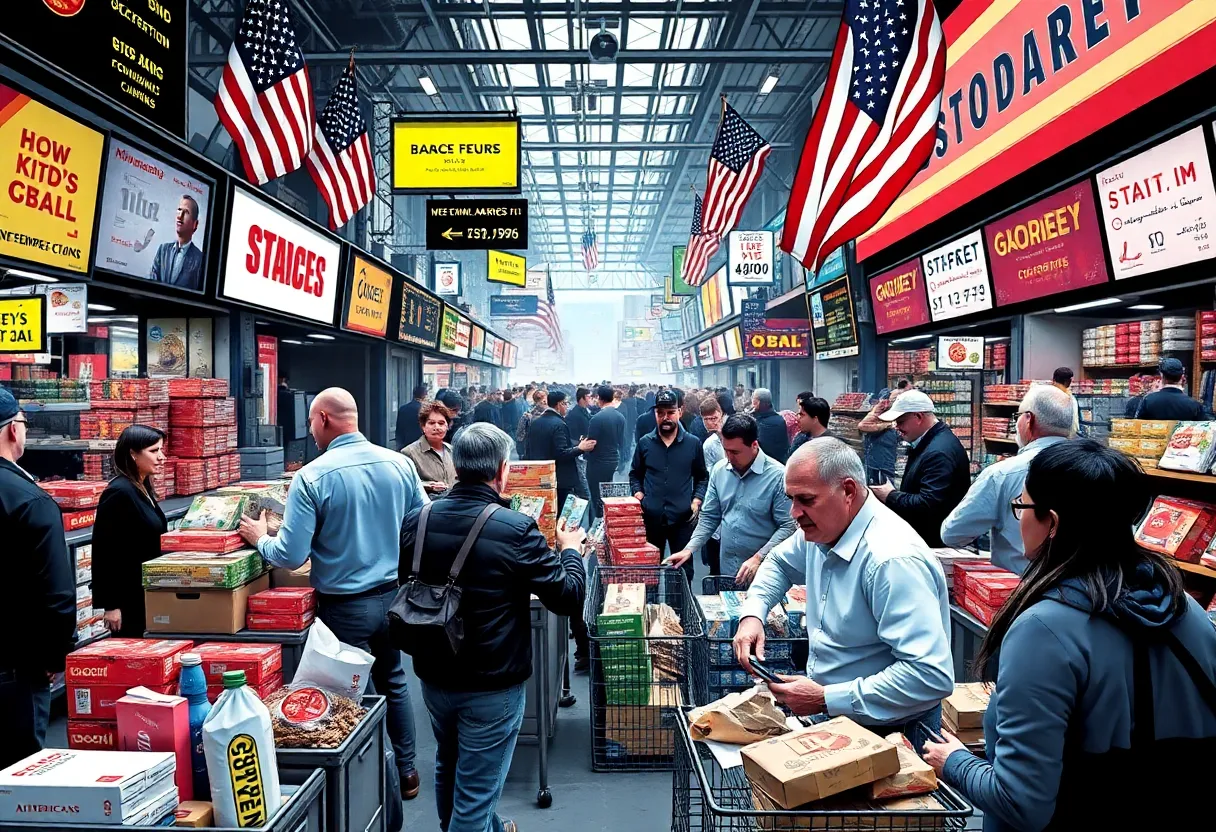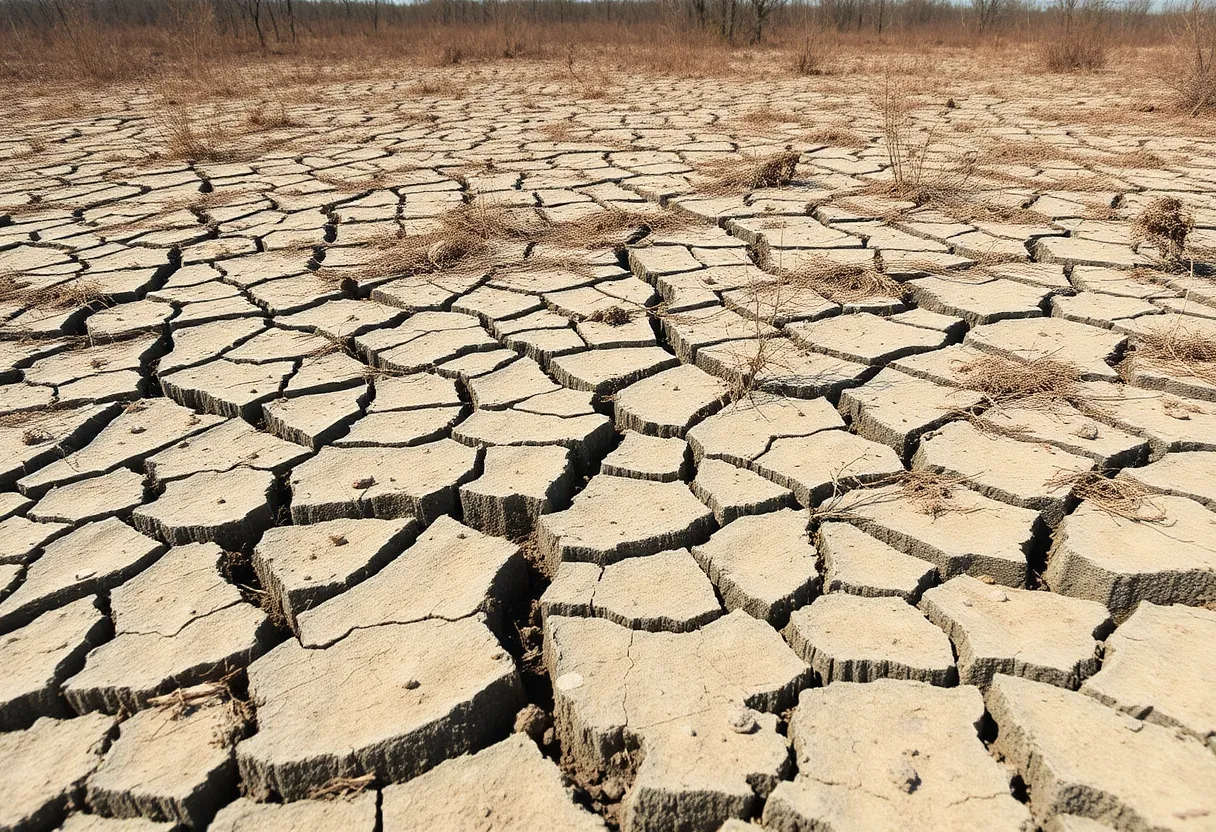News Summary
President Trump’s latest tariff policy has sparked significant economic turmoil, creating uncertainty in both the U.S. and global markets. The decision to impose steep tariffs on China while pausing increases for other nations has left many investors uneasy. Experts predict rising consumer prices and potential recession as Americans feel the brunt of these policies in their daily lives. The situation is exacerbated by chaotic messaging from the administration, leaving citizens anxious about their financial futures.
Trump’s Tariff Policy Causes Economic Unrest
President Donald Trump’s second term is turning heads, and not always for the right reasons. His decision-making has brought about a whirlwind of change, sending ripples across the US economy and the global marketplace, all thanks to his latest *tariff policy*. What started as an attempt to negotiate better trade deals seems to have spiraled into an economic rollercoaster.
A Self-Induced Economic Meltdown
As of April 2, 2025, the tariff landscape shifted dramatically. Trump announced a *90-day pause on higher tariffs* for dozens of countries but simultaneously cranked up tariffs on China to an eyebrow-raising *125%*. Initially, reciprocal tariffs were **high**, with rates soaring up to *50%* for many nations. The sudden changes have left many economists and analysts scratching their heads in confusion, and fears of a recession are now on the rise.
Market Volatility and Fickle Investor Confidence
The US stock market couldn’t quite handle the news, exhibiting significant volatility. After Trump’s announcement of the tariff pause, there were some notable gains, giving a glimmer of hope to investors. However, the bond market didn’t share that optimism; it reacted negatively, triggering a *sell-off of US government bonds*. Investors are starting to feel less secure about the US dollar, which has always been seen as a safe bet.
What’s even more concerning is the mixed messaging coming from Trump’s administration. Jamieson Greer, the US Trade Representative, learned about the tariff pause during a testimony before Congress, creating doubts about his credibility. Meanwhile, Treasury Secretary Scott Bessent tried to clear the air by claiming that such a delay had been on the cards all along. This sort of *chaotic leadership* has only added to the uncertainty surrounding the US economy.
Impact on Everyday Americans
With *retirement savings* now feeling the heat, many Americans are asking how these policies will affect their daily lives. Significant drops in 401(k) plans have left retirees worried about their financial futures. The varied tactics from the Trump administration have resulted in a baseline *10% tax on all imports*, disproportionately affecting goods based on trade surpluses, causing prices to rise.
The Economic Ripple Effects
Many economists warn that this *tariff strategy* is a heavyweight contender for the most economically flawed approach. They highlight potential ramifications like increased prices for consumer goods and inflation. As the prospect of job losses looms, predictions of economic contraction are surfacing, with some even talking about a possible GDP shrinkage. Jamie Dimon from JPMorgan has gone as far as stating that a recession might be on the horizon due to the ongoing tariff troubles.
The Diplomatic Games Continue
Despite Trump’s bold claims of having the upper hand in negotiations, discussions with foreign powers remain in limbo. China has shown its willingness to *retaliate*, which could set the stage for an even bigger trade war. If the tariffs continue to escalate, the ripple effect could dramatically impact industries that rely on imports. Sectors like *pharmaceuticals* and *semiconductors* might see increased costs, directly affecting healthcare prices.
Future Uncertainties and Political Maneuvering
As Trump navigates this tricky landscape, his decision-making process is being critiqued for its *lack of structured long-term planning*. There is also growing concern among Congressional Republicans about shielding Trump’s tariff decisions from legislative oversight, stirring fears of unbalanced power dynamics in governance.
With the potential for more tariffs looming, the future remains shaky and uncertain. Americans are left wondering how these policies will affect their livelihood, from job stability to the costs of everyday goods. The unpredictability of Trump’s administration means that everyone is on the edge, waiting to see what comes next in this ongoing saga of trade. The *economic implications* of these policies remain unclear as negotiations with global counterparts are far from resolved.
Deeper Dive: News & Info About This Topic
- CNN: Trump’s Tariff Policy Causes Economic Unrest
- Wikipedia: Tariffs
- NBC News: Volatility Reigns on Wall Street
- Google Search: Trump tariffs
- AP News: Trump Reciprocal Tariffs
- Encyclopedia Britannica: Tariff
- CNBC: Trump Tariffs Live Updates
- Google News: Trump tariff policy







